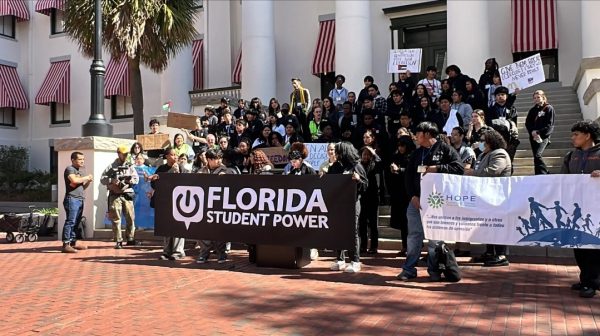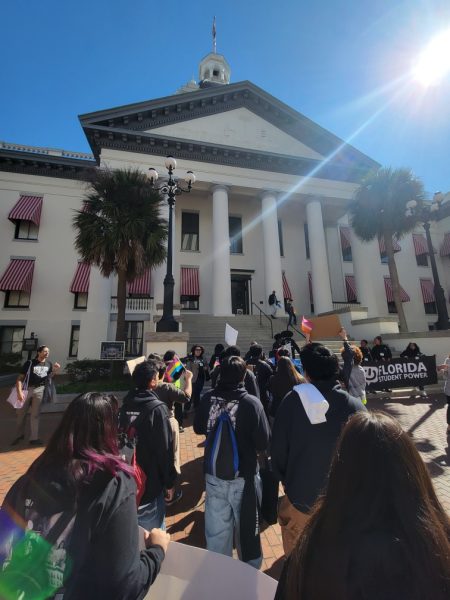Where Da Teachers At?
According to The74, dating back to 1921 there was discussion about an impending teacher shortage. In the beginning of the early 1970s and 80s, researchers predicted a teacher shortage due to a difficulty of teacher attrition. Around the 1990s, there was a lack of educators in fields such as life science, physical education, and linguistics. In 2008 during the great recession, an estimated 300,000 school personnel lost their teaching positions. By 2020, the pandemic contributed to thousands more quitting or entering early retirement.
In recent years there has been an upsurge of teacher shortages, but the dilemma has been ongoing. Back in October of 1921, The Journal of the National Education Association published an editorial stating the dangers of lacking trained teachers. 95 years later it’s still considered as one of the major reasons for the decline of educators.
States are attempting to increase their amount of teachers by being more lax on the requirements. Oklahoma has eliminated the Oklahoma General Education Test. Arizona has begun to allow current students without education degrees to begin teaching. New Mexico replaced subject skill tests with portfolios that demonstrate competency, but these changes might not be viable. These factors might not be able to retain teachers.
When asked about whether she believed the current adaptations would improve conditions, Mrs. Connor the biomedical innovations teacher at AHS stated,, Look at how the state of Florida has adjusted to the shortage, military and their spouse can teach without a degree… Why does being the spouse of a military professional make you qualified for the job? At this point they just need warm bodies in classrooms for safety.”
Lowering the requirements would allow individuals who were not properly equipped to take on responsibilities of a role they aren’t adequately prepared for, further driving the high attrition rate and lowering the quality of education.
Another factor that greatly plays into the absence of teachers is lack of regard from students, parents, district, politicians, and the community as a whole.
Mrs. Willard, the AHS media specialist who’s taught for 20 years, stated “I’d say in 2010 that’s when I started seeing the behavior side of it and the parents not really being supportive of teachers. The flat out loss of respect I want to say [it] probably happens more so [during the] shifts in politics. 2016 kind of started quite a quick decline in the way I think we’re viewed. I think COVID hit and all of a sudden we’re valued. ‘Oh my god how did teachers do this everyday’ cause you know everybody had to teach their kids, but then when COVID went away everybody really…it got worse it wasn’t like that value stayed it’s almost worse now.”
Mr. Mellon, an AHS AP Psychology teacher who’s been teaching for about 22 years said, “The community, it’s the community, people say they respect teachers but then they turn around and say that we’re trying to indoctrinate. So it’s politicians and the community that claim teachers have an easy job or that we just want things that aren’t fair. They always bring up ‘you only work nine months out of the year’ where it’s not really true. They disregard all the work that teachers do at home. I don’t know any teacher that’s worth anything that cannot take hours worth of work home a night. So it might now be every single night but there are weekends where I basically work, grading stuff for 8 hours, where you plan a couple hours a night. In no other job do you have to do that and not get paid for it and the community they look at public school teachers as if we’re whining or asking for things we shouldn’t have. ‘I’ve heard people say, Well go find another job.’ So it’s not students, students are great. I would say on whole students seem to support teachers, admin has been incredible. It’s politicians and not the whole community. There are people in the community that like us as a whole. The community looks at teachers as a necessary evil, during COVID they loved us but then once we all came back to school, there’s an example of lack of respect when we were still trying to figure out COVID. At first when everything was shut down and people understood, and then very quickly the community yelled teachers get back to work. Where we had teachers who were susceptible, they were part of that population that could get sick easily, and you’re saying ‘well suck it up, put a mask on it, and get back to work’ where others were still working from home. But it was the parents that were tired of having their kids home and they considered us whiny because we were like I don’t know if this is a good idea.”
Far more responsibility was placed on teachers; many that they were unable to control or had little to say in which were exacerbated by the COVID-19 pandemic.
This also ties into teachers being overworked. Governmental workers deal with classroom procedures and regulations that they don’t directly see the outcome of. Mrs. Durham, an AHS AP US history teacher who taught for 21 years, stated that “I guess just overtime as a teacher, like I know that when I first started out teaching high school, I didn’t even have as many students as I have now. So I had more planning time, I taught 5 periods instead of 6 periods, you know where you have 7 periods. I felt like I had more control over my contract time, that I actually had time to get most of my planning done and grading within the time allotted. And now I feel like I have less time and more to do, and like more paperwork and meetings.”
An additional component that factors into teacher attrition is pay. Pay is debated amongst teachers, with some requesting higher pay while others don’t express much of a concern.
Adding to the claim of teachers being overworked, Mrs. Connor mentioned, “To start, pay should be much higher. Secondly, teachers need more paid time to do the obligations they are expected to do like a second planning period. My friend in California is paid $110 and has 2 planning periods so she only teaches five classes a day. She creates such good lessons and has time for parent contact, while having time for the paperwork expected by admin.”
While Mr. Fairchild, another medical innovation teacher at AHS, who has been a teacher for 4 years stated, “So for me it’s easy, I’d rather have fulfillment than money. But you know some people, you know, they’d rather choose money. Speaking personally, I would absolutely never let my finances influence my teaching ever, to me that’s morally wrong. I’m here for you the student, and my allegiance is to your well-being more so that anything else, and helping you reach your potential. Allowing finances to violate that is absolutely not okay, so I try to keep the first-factor money separate one hundred percent.”
Each factor plays a significant role in collectively retaining educators. New teachers are more likely to quit than veterans. Paid internships and apprenticeships that guide upcoming educators into the workforce would assist them during the beginning of their career. Increasing pay, hiring more qualified teachers, getting them involved in decision making, and recognizing their contributions are a few ways to retain teachers of any experience level.










